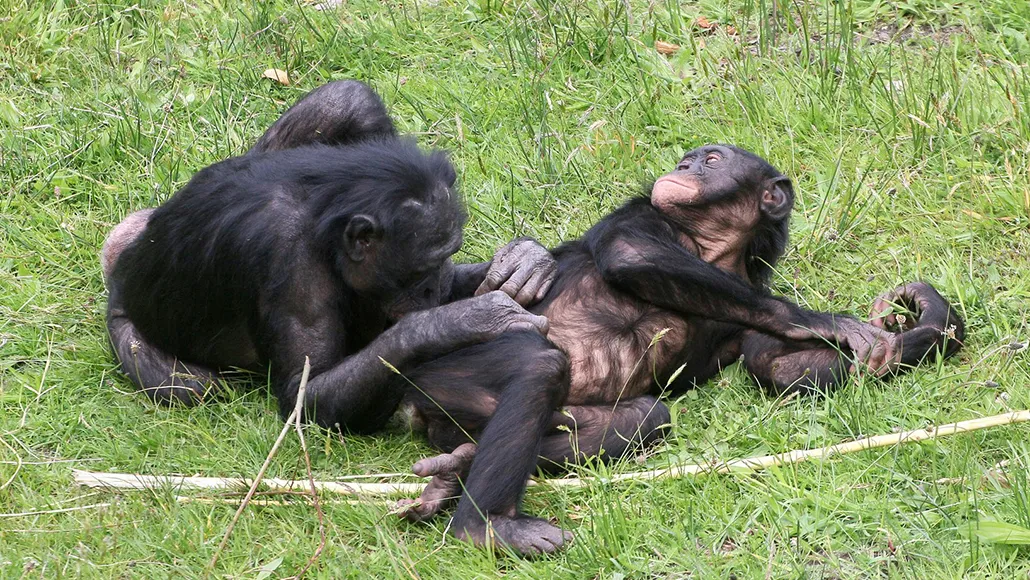
Bonobos show a basic sense of commitment to completing joint tasks, such as social grooming, that have been interrupted, scientists say.
Ger Bosma/Alamy Stock Photo

Bonobos show a basic sense of commitment to completing joint tasks, such as social grooming, that have been interrupted, scientists say.
Ger Bosma/Alamy Stock Photo